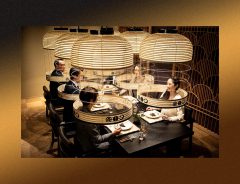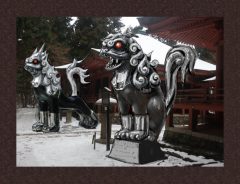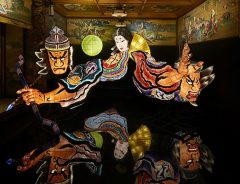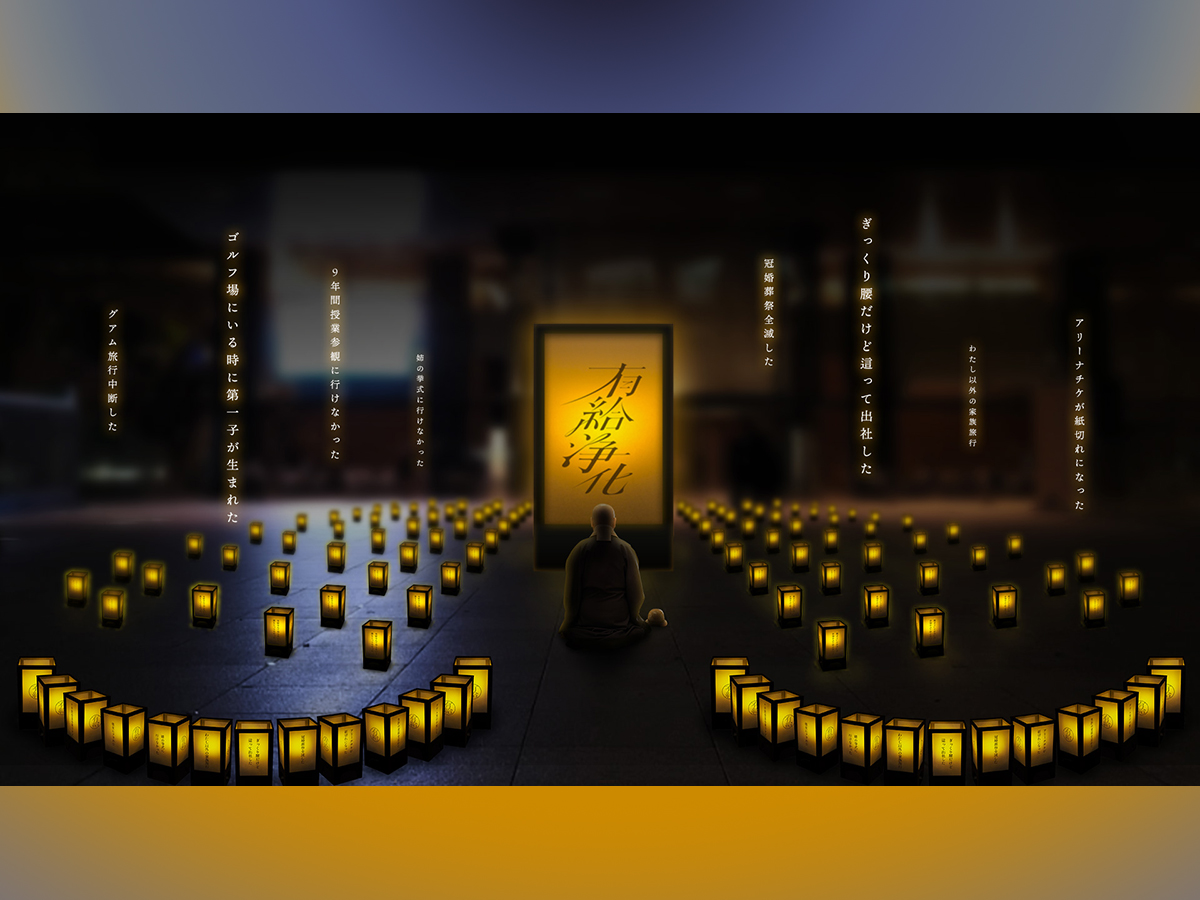- Source:
- © Ningen Co., Ltd.
- Tags:
- Buddhist ceremony / kuyo / labor law / Lantern / paid holiday / unused holiday / workaholic
Related Article
-

Hobbyist Creates Lamp Aquariums For An Artistic Dose Of Aquatic Life
-

Traditional Japanese & sci-fi aesthetics merge at HOSHINOYA Tokyo’s ‘Lantern Dining Experience’
-

10-Foot Tall “Guardian Beasts” Appear at World Heritage Site Enryaku-ji Temple in Kyoto
-

Traditional Nebuta Lanterns Suspended Over Water Look Like a Ghostly Apparition



Workaholic Japan and Labor Law Reform
While the ethic of hard work has served Japan well in the past, the country's workaholic culture has taken its toll on its population. Excessive work habits and karōshi (death by overwork) are often featured in international media.
According to Japan's Ministry of Health, Labour and Welfare, the acquisition rate of paid holidays by Japanese workers in 2017 was 51.1%, ranking the lowest in the world:
© PR Times, Inc.
The situation is so dire that the Japanese government passed its "Work Style Reform Legislation" in 2018, which made important amendments to existing labor laws aiming to reform work habits and reduce working hours. Among the changes implemented in April 2019, for example, employees must now take at least five days of paid holiday if more than 10 days of their annual paid holidays are unused.
Yūkyū Jōka: Buddhist Ceremony to Mourn Your Unused Holiday
© PR Times, Inc.
On the weekend of Labor Thanksgiving Day (November 23rd), a unique event called Yūkyū Jōka 有給浄化 (literally "paid holiday purification") will be held in Tokyo with the aim of positively influencing attitudes towards paid holidays.
In the same way that Japanese people attend kuyō 供養 ceremonies, meaning "putting spirits to rest," for inanimate objects which are no longer needed (the ceremonies for needles and dolls are most famous), Yūkyū Jōka is intended to be a kuyō for unused paid holidays.
Event organizers Ningen Co., Ltd. have invited Jōdo sect Buddhist Priest Takurō Sayama to perform the ceremony and have prepared several activities designed to encourage participants to consider the importance of taking paid holidays.
© PR Times, Inc.
Lanterns representing the "spirit" of unused holidays
At the ceremony, the priest will perform the kuyō surrounded by a display of 300 lanterns individually printed with brief messages of regret about unused paid holidays. The organizers will select 300 messages from the pool of submissions they are currently soliciting on their official website until November 15th. Moreover, specific episodes from the lives of the contributors who were unable to use their paid holidays will be projected onto a giant "Yūkyū lantern" in the center of the stage. These contributions from the public displayed on the lanterns symbolically represent "the spirit" of the unused paid holidays which will then be mourned and "purified" through the priest's prayers.
Jōdo sect Buddhist Priest Takurō Sayama
© PR Times, Inc.
For example, here are three episodes submitted by the public in a preliminary group:
* Japanese companies often conduct business over golf, so the man was on a business trip.
Make your own lantern
If you missed your opportunity to submit your message through the website, you can still do so in person if you attend the event. The organizers will have additional blank lanterns on location so you can create your own message and light it up during the ceremony.
Social media lantern
© PR Times, Inc.
In addition, for those who have social media accounts, there will be larger lanterns for you to write messages on and pose with. If you want, you can use it to tell your followers: "I took my paid holiday!"
Vote-ive lanterns
© PR Times, Inc.
Visitors are encouraged to read the messages on the lanterns during the event. You'll surely find messages you can relate to, messages with resonate with you. If you do, put a sticker on that lantern and make your vote count. Message contributors whose lanterns collect the most votes will be awarded a "Golden Paid Holiday Request Form."
Your holiday fortune
© PR Times, Inc.
The organizers have created yasumikuji やすみくじ, a clever word-play combining yasumi やすみ (holiday) and omikuji おみくじ (fortune-telling paper strips found at Shinto shrines and Buddhist temples in Japan).
Based on episodes of positive experiences of paid holidays submitted by the public in a preliminary group, these "holiday fortune" strips provide daily suggestions for ways you can spend a five-day paid holiday.
Event Information